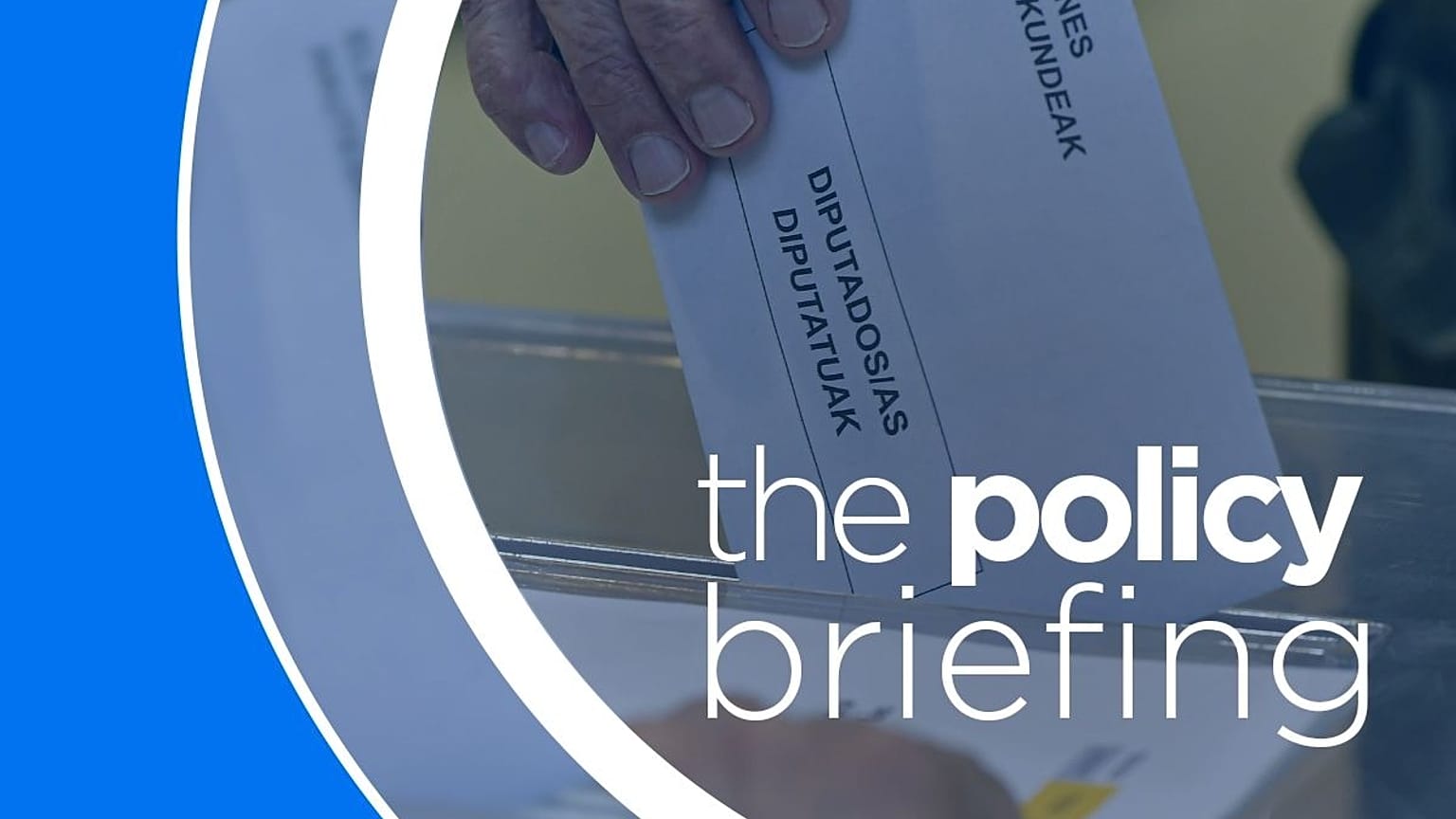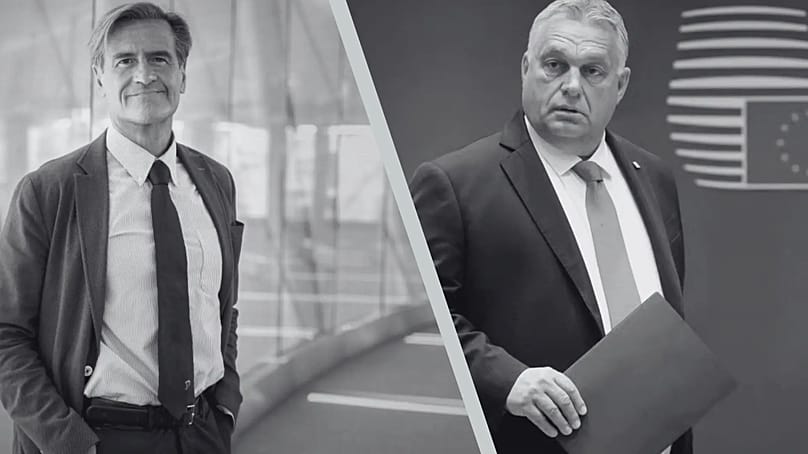This week's key events presented by Euronews’ reporters Romane Armangau and Eleonora Vasques.
Key diary dates
- Monday 10 November:
COP30 kicks off in Belém, Brazil
ENVI committee in the European Parliament votes the 2040 climate law
- Wednesday 12 November:
Commission presents European Democracy Shield
European Parliament mini- plenary in Brussels
Eurogroup meeting in Brussels
- Thursday 13 November:
European Parliament mini-plenary in Brussels
Economic and Financial Affairs Council in Brussels
- Friday 14 November:
Economic and Financial Affairs Council
In Spotlight
The European Commission will announce this Wednesday a landmark plan to counter foreign interference and misinformation in elections and democratic processes in Europe. The “European Democracy Shield” - as the plan is known - comes after multiple ballots held in the EU over the past year were affected by malign foreign actors.
In Romania, the 2024 presidential election was invalidated by the Constitutional Court after evidence showed that Russia had interfered through the social media platform TikTok in a mass coordinated campaign to sway the result. In Germany’s 2025 general election, tech billionaire Elon Musk, owner of X, faced accusations of meddling in support for the far-right Alternative for Germany (AfD) party by increasing its visibility on his platform.
Investigations by the European Commission are ongoing for the Romanian election interference case and X’s recommendation algorithm.
The Democracy Shield is expected to address interference in the EU decision-making process by increasing transparency and accountability over the use of the algorithm and technology. As Sillicon Valley and its tech billionaires play a larger role in the public debate through social media, the European Union is looking to find way to apply its regulation and consumer protection rights.
“Democracy in Europe has never had so many enemies, both inside and outside,” said French President Emmanuel Macron at the German celebration for democracy in May 2024. That is why the initiative will also target information manipulation coming from within the EU. The dire financial conditions of the media industry in general also make them vulnerable to pressures. The Press Freedom Index published every year by Reporters Without Borders shows a general decline in media independence in the EU, as financial difficulties lead to political interference.
The European Commission under the first von der Leyen term adopted various laws aimed at tackling risks for democracy online and in the media, including the Digital Services Act (DSA), the AI Act, and the European Media Freedom Act.
Concrete results are still limited as these provisions are not yet fully implemented. Last October, an investigation by Czech media outlet Voxpot reported how the volume of false stories and misinformation that risen dramatically in the run-up to the ballot in the Czech Republic, which handed a victory to the populist businessman Andrej Babis. The DSA is not fully applied in the Czech Republic.
Some critics argue that the Commission’s plans to regulate false information online go too far and resemble a new form of "censorship" as the executive decides what comments meet practical standards. This thesis has also exarbeted tensions between Brussels and the US adminstration under President Donald Trump.
“This 'democratic shield' is, in reality, a pro‑European propaganda tool aimed at silencing political opposition, targeting our views on immigration, sovereignty, and fundamental rights,” wrote the far-right Patriots for Europe party last December. Viktor Orbán and Jordan Bardella area among the party's most prominent voices.
Last February at Munich Security Conference, US Vice President JD Vance told Europeans: “If your democracy can be destroyed with a few hundred thousand dollars of digital advertising from a foreign country, then it wasn’t very strong to begin with.”
Key elections in France, Italy and Spain will be held in 2027.
Policy newsmakers
Migration ‘solidarity pool’ expected to be announced on Wednesday
The European Commission will likely announce the so-called “solidarity pool”, the key to the overall asylum and migration pact, the group of laws to manage migration within the European Union – and one of the most sensitive parts as it implies country quotas.
The pool mechanism foresees that EU countries will be able to choose between three options: the relocation of asylum seekers in their own territory, the payment of €20,000 per migrant they do not accept, or the finance of operational support.
On Wednesday, the Commission will also unveil a report assessing the migration’s state of play in EU countries and a list of EU countries identified as “under migratory pressure”, “at risk of migratory pressure” or “facing a significant migratory situation”.
However, the number of relocations and how countries decide to contribute will be classified as it is so politically toxic in the national debate. Still, Euronews hopes to bring all the details about the plan next week. Stay tuned.
European Commissioner for Migration Magnus Brunner will speak in Brussels at 15:00.
MEP Juan Fernando López Aguilar (Spain/S&D) is one the greatest supporters of the “mandatory solidarity” among EU countries, which involves either quotas, financial assistance or operational support. Meanwhile, Hungary's Orbán and his parliamentary group strongly oppose the process, arguing that the proposal should simply “out of the window”.
















